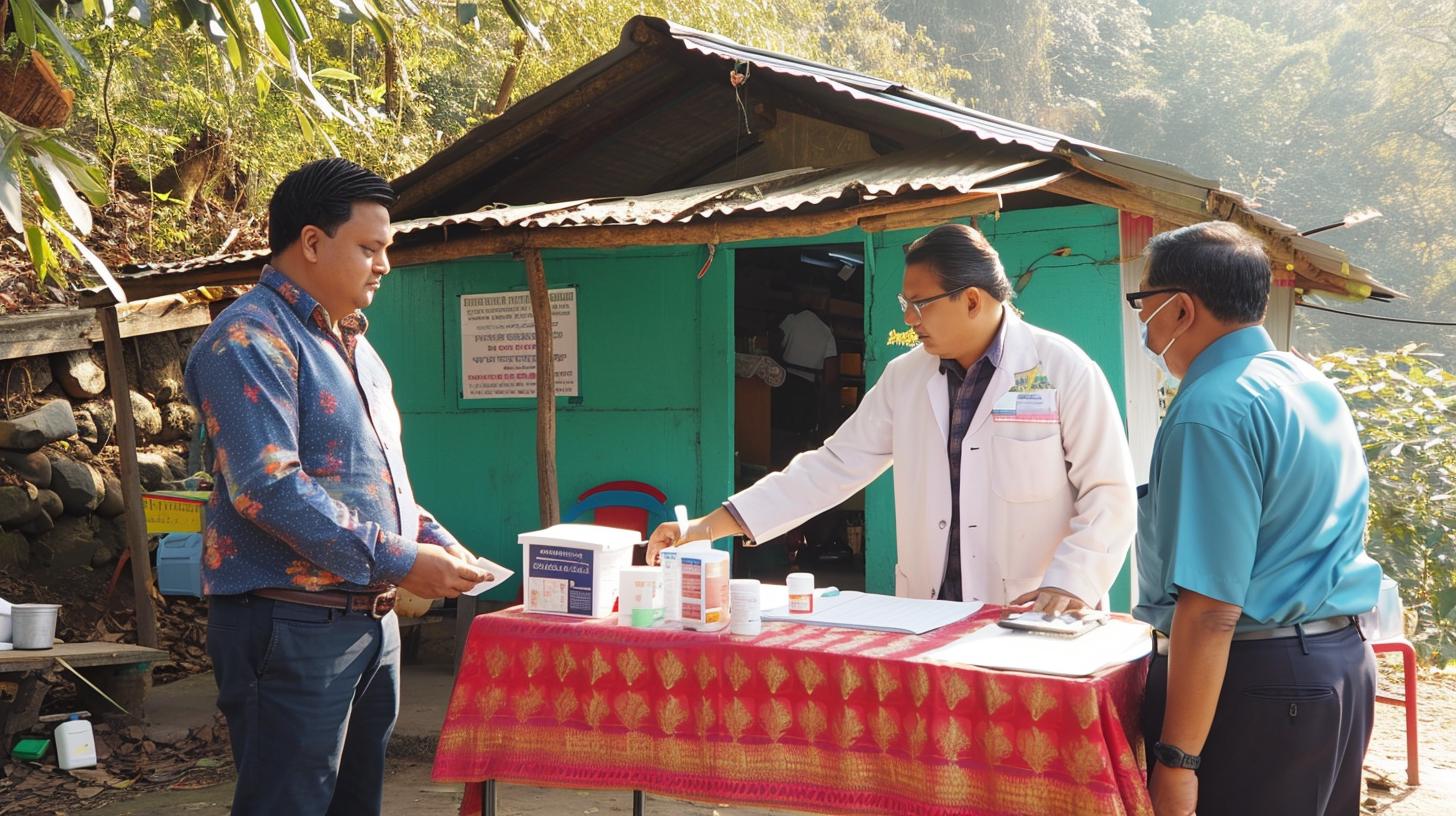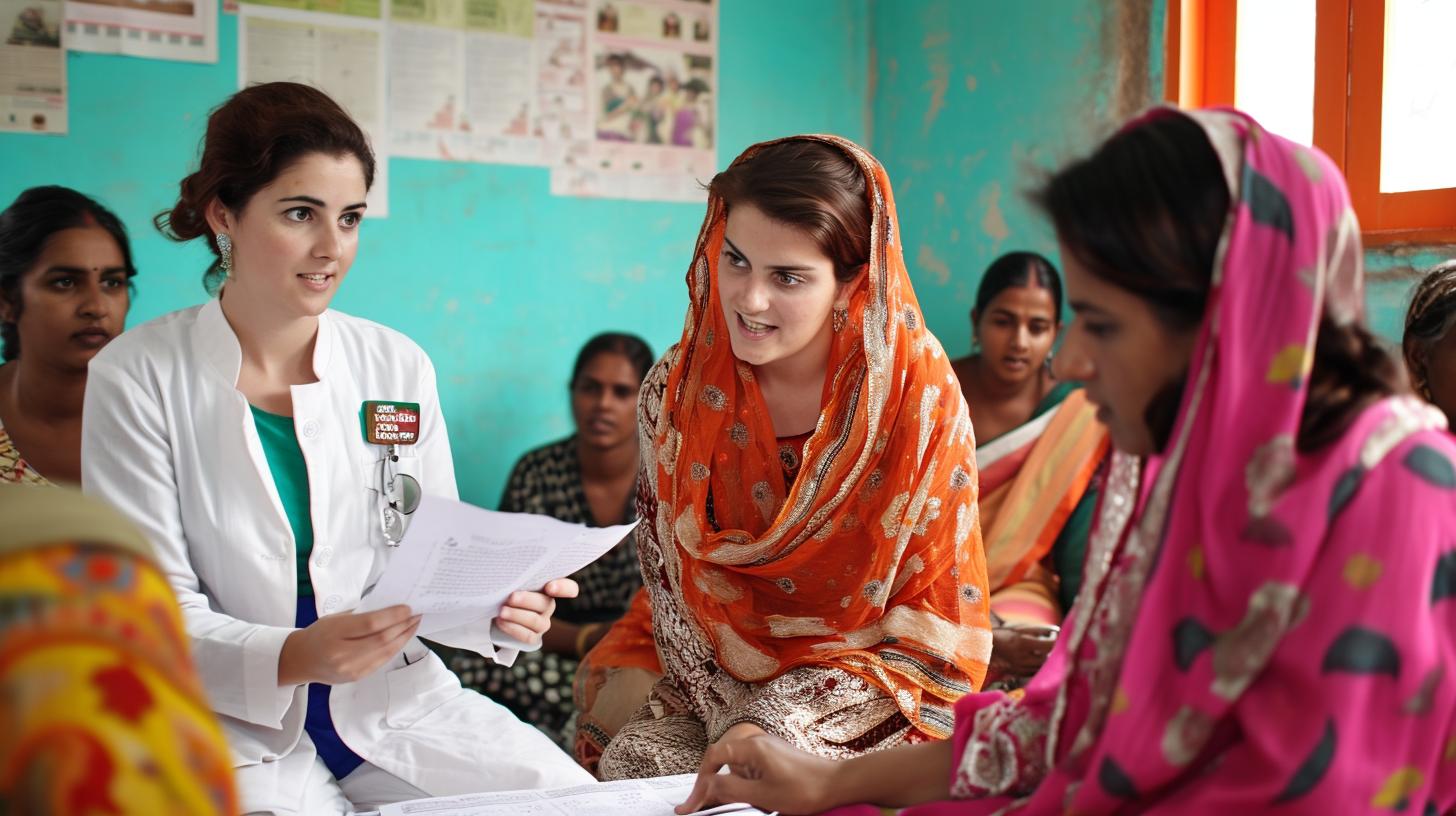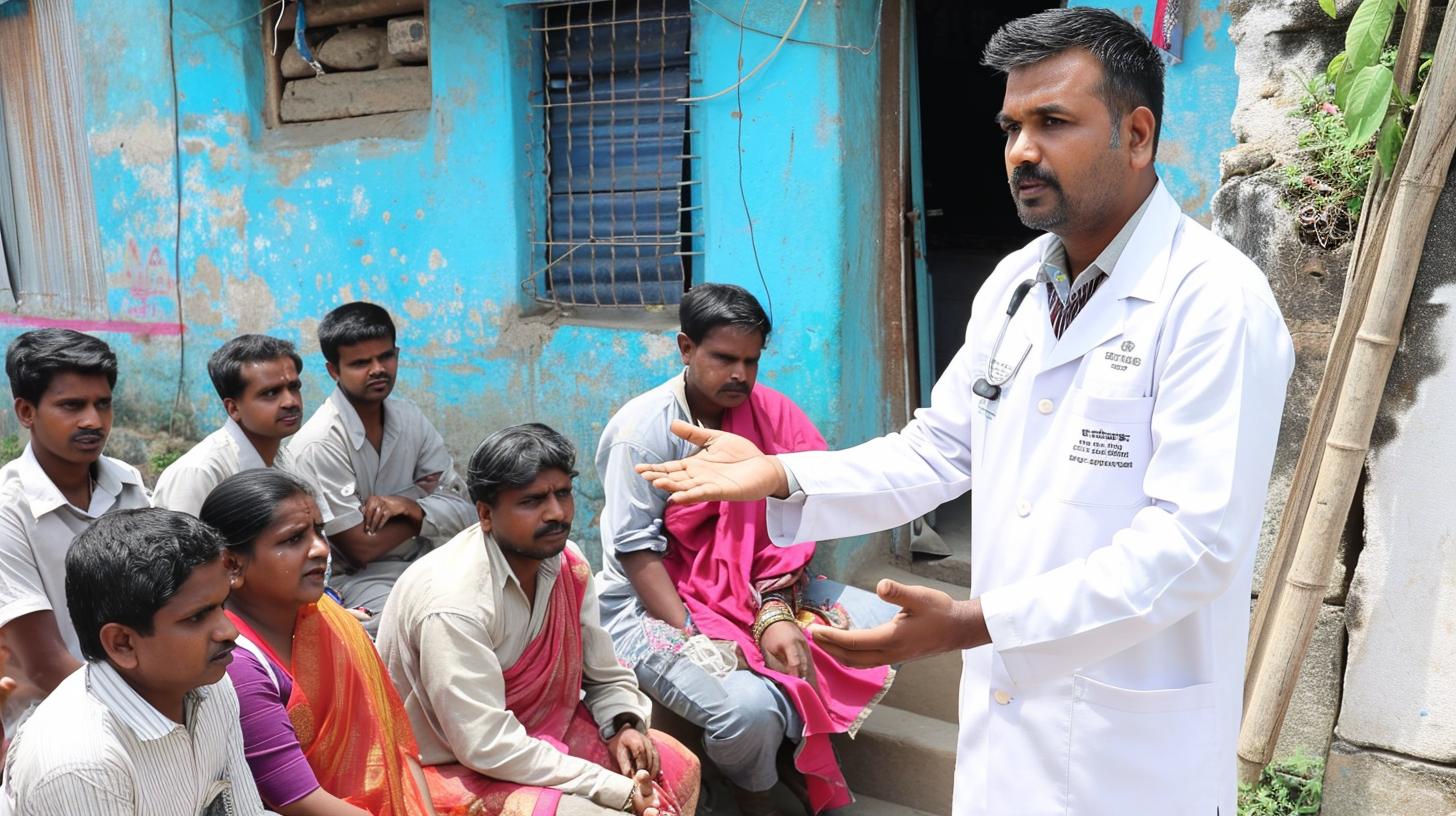
Health awareness camps play a crucial role in promoting well-being and educating individuals about various health issues. These camps are designed to provide essential health services, information, and resources to individuals in communities who may not have easy access to healthcare.
The main purpose of these camps is to raise awareness about preventive measures, offer medical screenings, and provide educational workshops on various health topics. In this article, we will discuss the impact, organization, and planning of health awareness camps, as well as the services offered and success stories that highlight their positive effects.
The impact of health awareness camps extends beyond the individuals who attend them; they have a ripple effect on entire communities. By providing essential screenings and informative workshops, these camps empower individuals to take better care of their health and effectively manage any existing medical conditions. As a result, communities become healthier and more informed about medical issues, leading to improved overall well-being.
Organizing a successful health awareness camp requires careful planning and coordination with healthcare professionals, local organizations, and volunteers. From securing a location to arranging for medical equipment and services, each step plays a vital role in ensuring that the camp achieves its goals. In the following sections of this article, we will delve into the details of organizing an effective health awareness camp and explore the diverse set of services that are typically offered at such events.
The Impact of Health Awareness Camps
Health awareness camps have a significant impact on both individuals and communities. These camps play a crucial role in promoting preventive healthcare, early detection of diseases, and overall well-being. They help in educating individuals about various health issues and equip them with the knowledge to make informed decisions about their health.
One of the positive effects of health awareness camps is the increased accessibility to medical services. Many individuals, especially those from underserved communities, may not have easy access to healthcare facilities. Health awareness camps bring these essential services directly to the people, addressing their immediate health needs and concerns.
Furthermore, these camps also create a sense of community empowerment and involvement. When individuals come together for a common cause like improving their health, it fosters a supportive environment where they can learn from each other’s experiences and work towards bettering their overall well-being. Community involvement is crucial in making these camps successful, as volunteers play an integral role in organizing and executing the various activities at the camp.
In addition to physical health benefits, health awareness camps also have a positive impact on mental and emotional well-being. The educational workshops and seminars conducted at these camps often address mental health issues and provide resources for individuals struggling with such concerns. By addressing all aspects of health, these camps contribute to creating healthier and more resilient communities.
| Positive Effects | Impact |
|---|---|
| Increased accessibility to medical services | Directly addresses immediate health needs |
| Community empowerment | Fosters a supportive environment for better overall well-being |
| Mental and emotional well-being | Addresses mental health issues for healthier communities |
Organization and Planning
Organizing and planning a health awareness camp requires careful consideration and coordination to ensure its success. The first step in this process is to establish a clear objective for the camp, whether it’s promoting awareness about a specific health issue, providing screenings for common diseases, or offering medical services to those in need. Once the objective is determined, a dedicated team of volunteers or healthcare professionals should be assembled to assist with the planning and execution of the camp.
In addition to assembling a team, securing a suitable location for the health awareness camp is crucial. Whether it’s a community center, school gymnasium, or outdoor space, the venue should be easily accessible to the target audience and have adequate facilities for conducting health screenings and educational workshops. Furthermore, obtaining any necessary permits or permissions from local authorities may also be required depending on the location chosen for the camp.
Another important aspect of organizing a health awareness camp is securing funding and resources. Depending on the scale of the camp and the services offered, there may be costs associated with venue rental, equipment, supplies, and promotional materials. Seeking sponsorship from local businesses or partnering with healthcare organizations can help offset these costs and ensure that the camp has everything it needs to be successful.
Overall, careful organization and planning are essential components of a successful health awareness camp. By establishing clear objectives, assembling a dedicated team, securing a suitable location, and obtaining necessary resources, organizers can ensure that their camp effectively raises awareness about important health issues within their community.
| Aspect | Description |
|---|---|
| Objective | Determine clear objective for the camp (e.g. promoting awareness about specific health issue) |
| Location | Secure suitable venue with necessary facilities for screenings and workshops |
| Funding | Obtain funding through sponsorship or partnerships to cover costs associated with organizing the camp |
Health Screenings and Services Offered
Health awareness camps play a crucial role in providing essential health screenings and medical services to individuals who may not have easy access to healthcare facilities. These camps aim to bridge the gap in healthcare services by offering various screenings and services that can help identify potential health issues and provide necessary medical attention.

Types of Health Screenings
Health awareness camps typically offer a wide range of health screenings, including blood pressure checks, glucose testing, cholesterol screening, BMI measurements, vision and hearing tests, dental check-ups, and more. These screenings are essential in identifying any underlying health problems or risk factors that individuals may be unaware of.
Medical Services Provided
In addition to health screenings, these camps also provide essential medical services such as immunizations, basic first aid, general consultations with healthcare professionals, and referrals for further specialized care if needed. This can be especially beneficial for those who may not have regular access to medical facilities or healthcare providers.
Importance of Accessible Healthcare
By offering such screenings and services on-site at the camp, individuals are given the opportunity to address their health concerns in a convenient and accessible manner. This not only promotes early detection and prevention of diseases but also empowers individuals to take control of their own health and well-being.
The impact of these health screenings and medical services provided at health awareness camps cannot be understated. By reaching out directly to communities in need, these camps make a significant difference in promoting better overall health outcomes for individuals and fostering a culture of proactive wellness within the community.
Educational Workshops and Seminars
Topics Covered
These workshops and seminars cover a wide range of topics, including but not limited to, nutrition, mental health, chronic diseases, reproductive health, and hygiene. Speakers and presenters may include healthcare professionals, nutritionists, mental health counselors, or individuals who have overcome significant health challenges.
Interactive Sessions
One of the key features of these educational components is their interactive nature. Attendees are encouraged to ask questions and seek clarification on specific health concerns. This creates an open dialogue between the experts and the community members, facilitating a better understanding of various health issues.
Distribution of Educational Materials
In addition to live presentations, informational materials such as brochures, pamphlets, and flyers are often distributed at these workshops and seminars. These materials serve as valuable take-home resources for attendees to reference later.
Overall, the educational workshops and seminars held during a health awareness camp serve as an essential platform for disseminating vital information about health-related topics that can empower individuals to make informed decisions regarding their well-being. By participating in or organizing these events, individuals can contribute to building healthier and more knowledgeable communities.

Success Stories
Health awareness camps have the power to make a real difference in the lives of individuals and communities. These camps aim to educate, inform, and empower people to take charge of their health and well-being. One of the most impactful aspects of health awareness camps is the real-life success stories of individuals who have benefited from attending these events.
Some of the common success stories that emerge from health awareness camps include individuals who were able to detect health issues early through screenings provided at the camp, leading to timely medical intervention and treatment. For example:
- A participant at a health awareness camp discovered high blood pressure during a free health screening. They were then able to seek medical attention and manage their condition, ultimately avoiding serious complications.
- Another individual learned about proper nutrition and lifestyle changes through educational workshops at the camp, resulting in significant weight loss and improved overall health.
These success stories serve as powerful motivators for others to take charge of their own health. By sharing these experiences, participants inspire others within their communities to prioritize their well-being and take advantage of the resources available at future health awareness camps.
Furthermore, these success stories also help highlight the effectiveness and impact of these camps on promoting healthier lifestyles and disease prevention within communities. It also encourages community members to become actively involved in organizing or participating in future health awareness camps, ultimately creating a positive ripple effect for overall community well-being.
Community Involvement
Health awareness camps are a collaborative effort that relies heavily on the involvement of the community and volunteers. Their participation is crucial in making these camps successful and impactful. Here are some ways in which the community and volunteers play a significant role in the success of health awareness camps:
- Volunteer Recruitment: Community members can volunteer their time and skills to help organize and facilitate the health awareness camp. Their enthusiasm and dedication can greatly contribute to the smooth functioning of the event.
- Spreading Awareness: The community plays a vital role in spreading the word about the health awareness camp. By sharing information through social media, word of mouth, and local outreach efforts, they can ensure that more people benefit from the services offered.
- Resource Mobilization: In many cases, community members and local businesses come forward to provide resources such as venue space, medical equipment, refreshments, or promotional materials for the camp. Their contributions are integral in making the event possible.
Community involvement also fosters a sense of ownership and empowerment among individuals. When people come together to address healthcare needs within their community, it creates a strong bond and shared commitment towards better health outcomes.
Additionally, volunteers who lend their time and expertise bring diverse skills to the table. They may include healthcare professionals like doctors, nurses, or pharmacists who provide medical expertise during screenings or workshops. Other volunteers with event planning or communication skills may help coordinate logistics or lead educational sessions. This collective effort not only enriches the content of the camp but also encourages a spirit of solidarity towards promoting wellness within the community at large.
Call to Action
In conclusion, health awareness camps play a crucial role in promoting well-being within communities. The impact of these camps is evident in the positive effects they have on individuals and the community as a whole. From providing essential health screenings and services to conducting informative workshops and seminars, these camps serve as valuable resources for increasing health awareness and education.
The success stories shared by individuals who have benefited from health awareness camps are a testament to the importance of these initiatives. These stories serve as inspiration for others to take part in or organize their own health awareness camps. Community involvement and volunteer participation are also essential components that contribute to the success of these camps, emphasizing the collective effort required to promote better health within our communities.
As we wrap up, it is important for readers to consider participating in or organizing their own health awareness camp. By doing so, individuals can actively contribute to the promotion of well-being within their own communities.
Whether it’s through volunteering at an existing camp or taking the initiative to organize one, everyone has a part to play in raising health awareness and ensuring access to essential medical services for all members of society. Together, we can make a difference in improving the overall health and wellness of our communities through these impactful initiatives.






